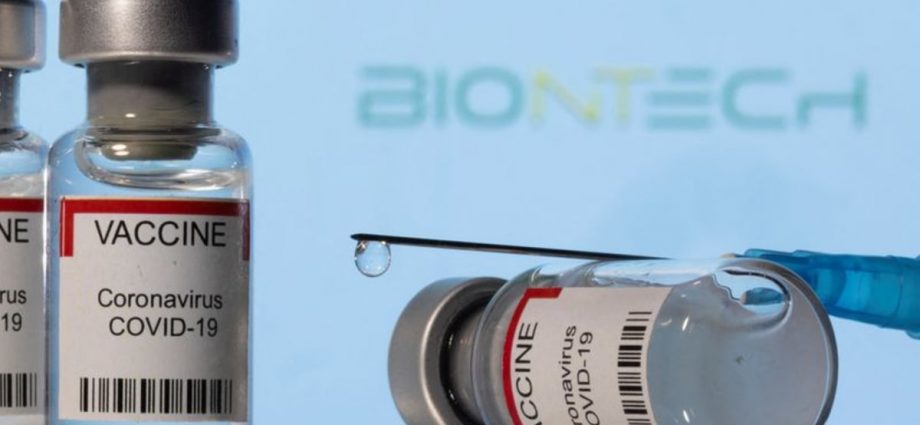
BERLIN: Berlin has sent its first batch of BioNTech COVID-19 vaccines to China to be administered initially to German expatriates, a German government spokesperson said on Wednesday (Dec 21), the first foreign coronavirus vaccine to be delivered to the country.
No other details were available on the timing and size of the delivery, although the spokesperson said that Berlin is pushing for foreigners other than German citizens to be allowed access to the shot if they want it.
The shipment comes after China agreed to allow German nationals in the country to get the shot following a deal during Chancellor Olaf Scholz’s visit in Beijing last month, with the German leader pressing for Beijing to allow the shot to be made freely available to Chinese citizens as well.
There are about 20,000 German nationals currently in the country.
“I can confirm a shipment of the BioNTech vaccine is on its way to China,” the person told journalists in Berlin.
“We are working on the possibility that besides Germans also other foreigners can be vaccinated with BioNTech.”
In return, Chinese citizens in Europe can be vaccinated with China’s Sinovac, the spokesperson said.
The comment comes after a report earlier this month that Germany’s health ministry had granted a permit allowing China’s Sinovac COVID-19 vaccine to be imported to Germany to be given to Chinese citizens in that country.
The shot has not been approved for use by Europe’s drug regulator, but the World Health Organization has given its green light for its use.
Beijing has so far insisted on using only domestically produced vaccines, which are not based on the Western mRNA technology but on more traditional technologies.
The shipment comes amid Beijing dismantling its strict “zero-COVID” regime of lockdowns, which has led to a surge of cases that caught a fragile health system unprepared.
Experts predict that the country of 1.4 billion people could face more than a million COVID-19 deaths next year.
Allowing German expats access to a Western shot is a big gesture to Berlin, reflecting Beijing’s effort to strengthen ties with the European Union’s biggest economy after years of tensions over trade and climate between the two countries.
BioNTech did not comment on the situation on Wednesday.

